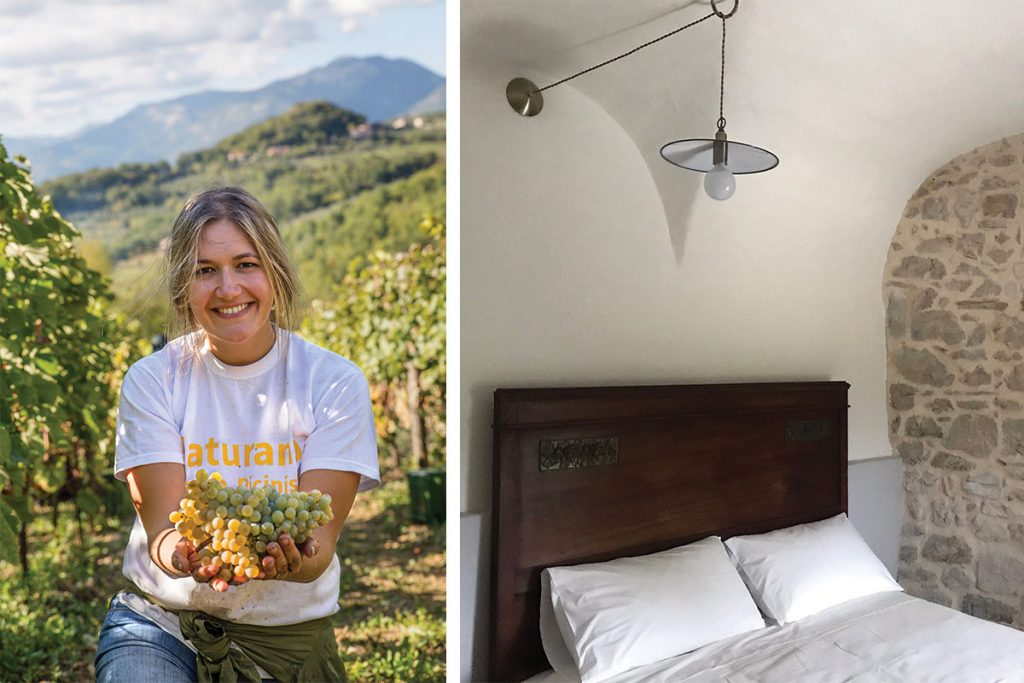We caught up with the Scots-Italian family who have turned a tiny hamlet in Lazio into a destination for food and wine lovers
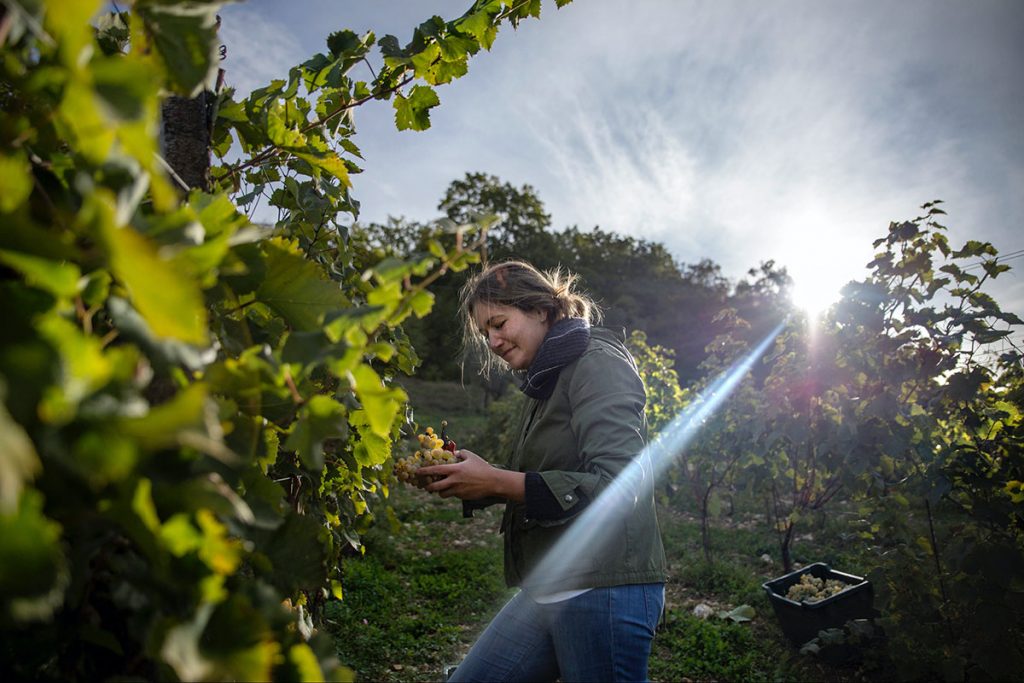
Words Gillian Welsh
Italy has had a huge influence on Scotland’s eating habits. After the First World War, thousands of impoverished Italians emigrated in search of a more prosperous life. They found it in Glasgow, Dundee, Edinburgh and across the whole country, wherever they opened fish and chip shops and ice-cream parlours.
This is the story of I Ciacca, a hamlet near the town of Picinisco, halfway between Rome and Naples, where the same well-worn path has been taken – only this time in reverse. A Scottish family, albeit one with Italian roots, have set up a vineyard, winery, farm and boutique hotel there. Sofia Di Ciacca Tana, who runs the business along with her mum, dad and brother, explains that getting involved in this remote mountain-top hamlet stems from more than just ancestry. “Nostalgia, passion and madness all played big parts,” she says with a smile.
Her grandfather, Johnny, was born in I Ciacca in 1919 and spent the first few years of his life on a farm there before his family joined the exodus to Scotland. The farm was eventually abandoned in the 1950s after the last of his kinsfolk departed. Then, almost 100 years after young Johnny made the long trek to Britain, his son Cesidio, Sofia’s dad, returned to Italy to revive his ancestors’ 500-year-old hamlet and the nearby village.
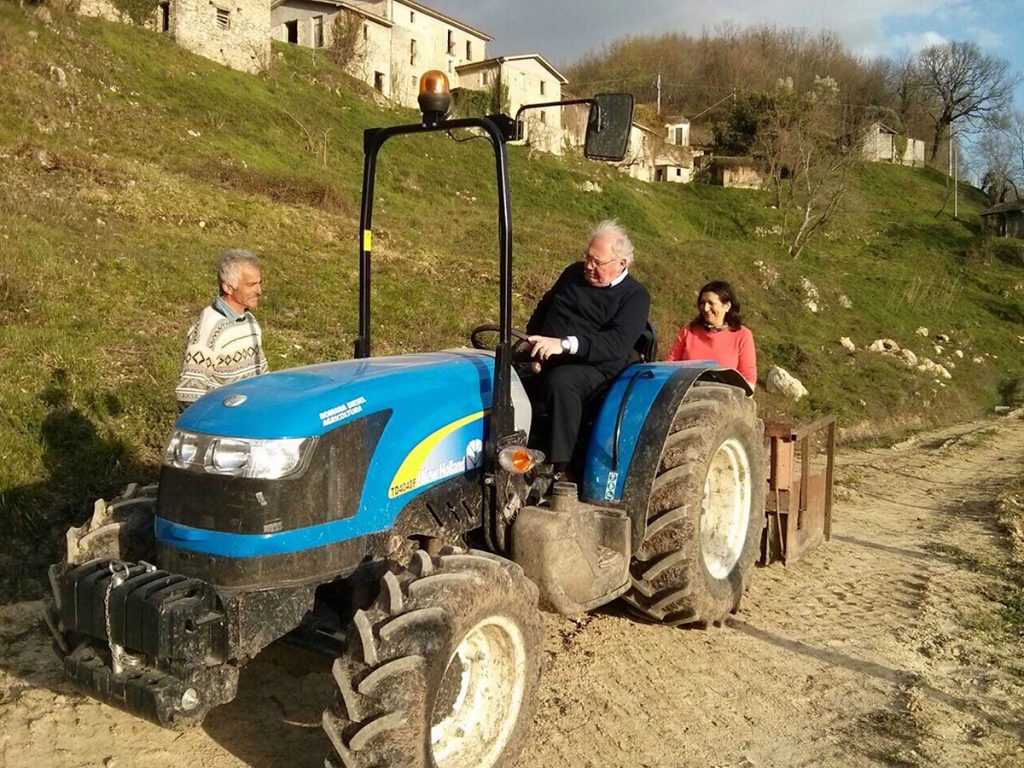
Cesidio is one of eight siblings (he’s the older brother of Edinburgh restaurateurs Carina and Mary Contini) who grew up above the family ice-cream shop in Cockenzie, hearing the stories of the little hamlet in Lazio. Mary has even written two books about it, Dear Francesca and Dear Olivia.
“When my parents had the chance to purchase the 220 parcels of land from the 140 (very) distant relatives and bring the borgo, vineyard and farm back together, it seemed like fate,” says Sofia. Joining the family business in 2016 has been a big change for the high-flying law graduate, but she has adapted quickly to her role as manager of the whole enterprise. “Like all other farms, spring is a time for cleaning and pruning, summer is for praying that it’s not too hot or too wet, autumn is for harvesting, and winter is for tidying up and making repairs.”
Apart from the vineyards, there’s also ten hectares of organic olive groves to oversee; 40 beehives; a state-of-the-art winery; and the borgo, a collection of simple houses and farmhouses, most of them at least 500 years old. She has had the latter restored, keeping their charm and character, and they’re now available to hire for events – she and her husband Luigi got married here.
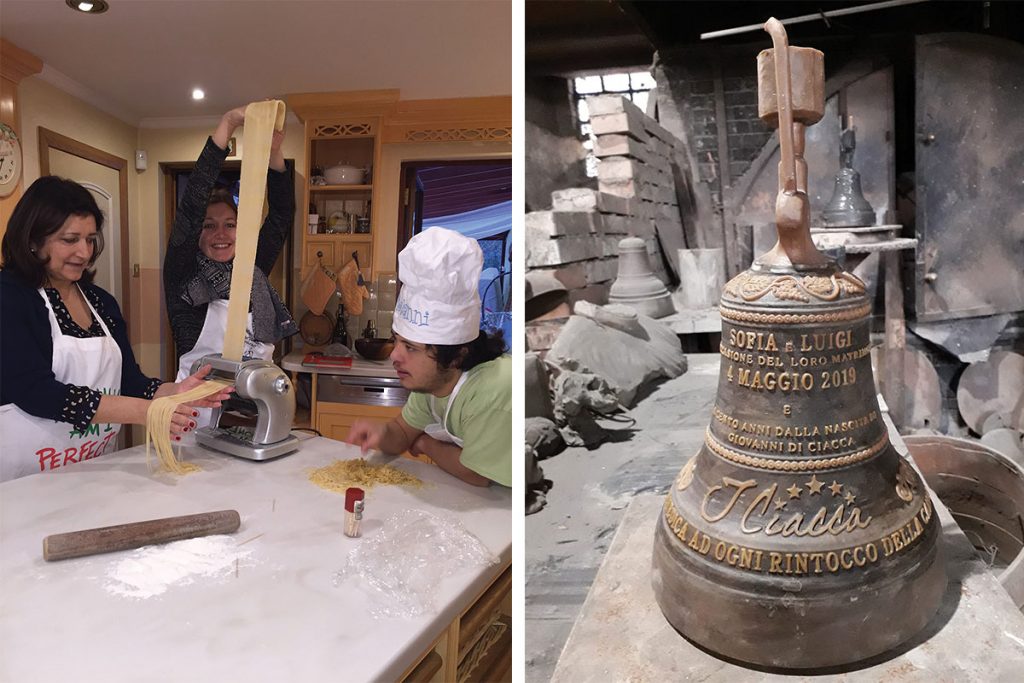
The latest addition is Sotto Le Stelle, whose name means ‘under the stars’, a five-star boutique hotel formed from a collection of village houses. It deliberately has no bar and restaurant, and guests are instead encouraged to sample the local cuisine at the four nearby restaurants and two bars.
Running the place is a team effort. “My brilliant brother Giovanni, who’s 21 and has Down’s Syndrome, loves to help. He’s an expert on family history, so his favourite job is leading the tours of the hamlet. He’s a dab hand at a wine-tasting too.”
There have been challenges. Notorious Italian bureaucracy had to be overcome, and when the 2016 harvest was eaten by wild boars (a huge problem all over Italy), the family had to invest in zoo-grade fencing to keep them out. Despite all this, much progress has been made, and the intention remains to grow the highest quality organic produce, offer beautiful accommodation and showcase the best of what this corner of Italy has to offer.
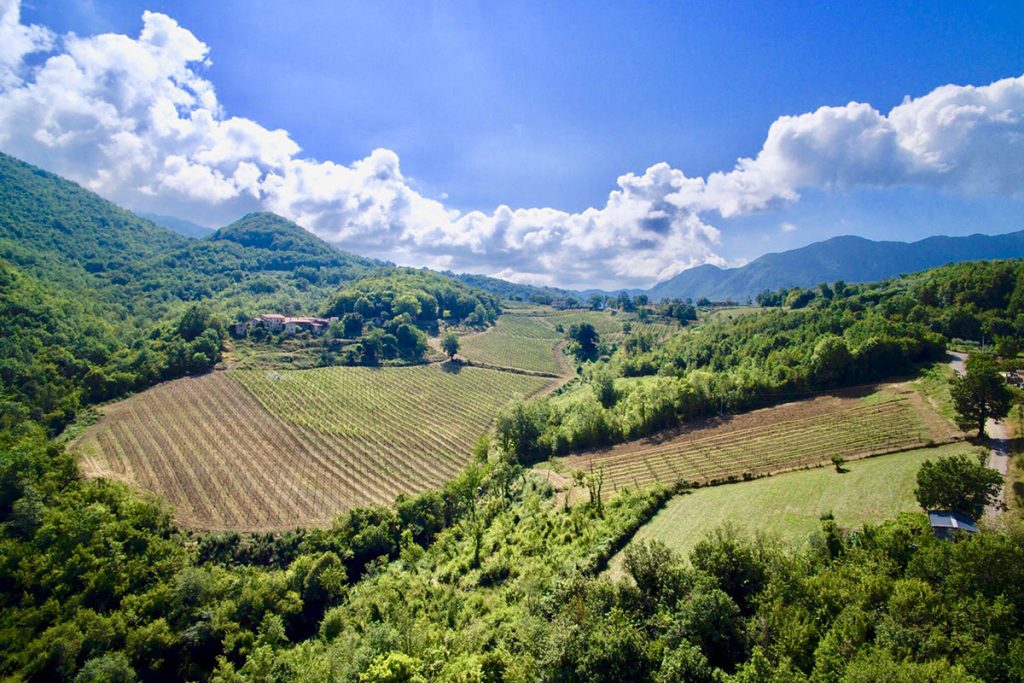
Food and wine tours teach visitors about the local pasta, olive oil, cheese, prosciutto and other specialities. And then there’s the wine, made from the indigenous maturano grapes. “The taste is like nothing else but it’s very moreish,” says Sofia. “I love that we have produced a wine that is completely true to the terroir and the traditions of the area.”
One of the principal aims of the business was to regenerate the area by providing opportunities and hope to the village youth. “We only employ locals,” says Sofia. “The majority of our team are under 35 and have been with us since the beginning.”
The family, she adds, have always learned from each other by sitting around the table and talking. “Our philosophy is the same – let’s share this knowledge, the stories, experience, recipes and traditions – and learn from each other, from the old farmers, the young entrepreneurs, the established businessmen, the nonnas and children, the teachers and students. I Ciacca is to be a hub for this exchange, a centre of excellence for agriculture, gastronomy and viticulture.”
I Ciacca, it’s clear, is Sofia’s life – her family, her history, her present and now her future. As her father puts it, “The buildings had died but the heart didn’t stop beating.”
